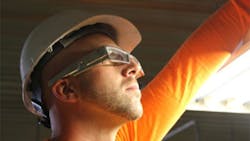How to Train Millennials for Manufacturing Careers
With 2.7 million manufacturing employees expected to retire in the next eight years, according to NAM, the search is on for the new workers.
While millennials will fill these positions, drawing them into industry and simultaneously understanding how they work is a huge challenge for manufacturers.
In a series on how manufacturers are attracting workers, Leo Boselovic of the Pittsburgh Post-Gazette, talked to manufacturers across the state.
“Millennials like to see results right now,” said Scott Covert, who runs an in-house training program at Penn United Technologies, a Butler County tool-and-die shop that employs about 600.
To that requires online courses and lots of hands-on work where students learn practical applications of theory, says Boselovic.
He points out that some educational institutions are already providing such training.
At Beaver County Community College, which offers a number of manufacturing-related degrees, getting and keeping millennials engaged means using 3-D printers, laser cutters and other equipment that puts a finished product in students’ hands quickly. The products include 3-D printed plastic molds used to make chocolate candies featuring the school’s logo.
“These students are so used to instant gratification. This feeds right into their personality,” said Mike Aikens, a natural science and technology professor. “We have to connect with them. They are digital natives.”
One of the classes Mr. Aikens teaches was developed through National Science Foundation grants promoting science, technology, engineering and math, or STEM, skills. The grants fund workshops where teachers learn how to teach other teachers how to incorporate lessons in those subjects into a semester-long class where students make custom-designed electric guitars.
To reach the entire article click here.
